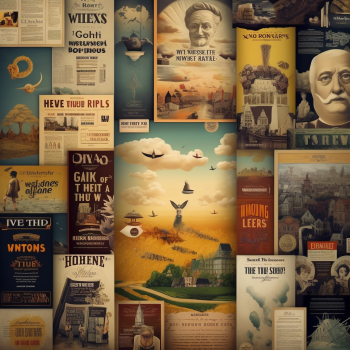Wonders_of_the_Universe《宇宙的奇迹》

简述
封面

影片信息
官方网站
http://www.bbc.co.uk/programmes/b00zdhtg
影片原始规格:
- 中文片名 :宇宙的奇迹
- 中文系列名:
- 英文片名 :Wonders of the Universe
- 英文系列名:
- 电视台 :BBC
- 地区 :英国
- 语言 :英语
- 时长 :约 59 分钟
- 版本 :TV
- 发行时间 :2011
影片内容介绍
剧情简介
茫茫宇宙,人类从何而来?宇宙又将走向何处?带着万千的疑问,我们跟随Brian Cox教授一起感受地球上罕见的景观,在这些壮丽的景观背后,隐藏着宇宙的秘密……让我们在欣赏美景的同时,深入了解物理学,逐渐揭开宇宙各种奇迹的神秘面纱,明了了人类与宇宙的深邃联系。
阳光帅哥Brian Cox是一位粒子物理学家,曼彻斯特大学高能物理学教授,英国皇家学会会员,也是瑞士欧洲核物理研究组织(CERN)之大型强子对撞器(LHC)的六大实验参与者之一。但他的成名却是由于近年来常常出现在是BBC科普节目中。BBC曾播出他主持的科教节目的Wonders of the Solar System(《太阳系的奇迹》)。
分集介绍
【天地宿命】Destiny
In this episode, Brian seeks to understand the nature of time and its role in creating both the universe and ourselves. From an extraordinary calendar built into the landscape of Peru to the beaches of Costa Rica, Brian explores the cycles of time which define our experience of life on Earth. But even the most epic cycles of life can’t begin to compare to the vast expanse of cosmic time. For instance, just as the Earth orbits the Sun, the solar system orbits the entire Milky Way galaxy. This orbit takes a staggering 250 million years to complete. Ultimately, Brian discovers that time is not characterised by repetition but by irreversible change. From the relentless march of a glacier, to the decay of an old mining town, the ravaging effects of time are all around us. The vast universe is subject to these same laws of change. As we look out to the cosmos, we can see the story of its evolution unfold, from the death of the first stars to the birth of the youngest. This journey from birth to death will ultimately lead to the destruction not just of our planet, but also the entire universe, and with it the end of time itself. Yet without this inevitable destruction, the universe would be without what is perhaps the greatest wonder of all; the brief moment in time in which life can exist.
【不灭星尘】Stardust
In the second stop in his exploration of the wonders of the universe, Professor Brian Cox goes in search of humanity’s very essence to answer the biggest questions of all: what are we? And where do we come from? This film is the story of matter - the stuff of which we are all made. Brian reveals how our origins are entwined with the life cycle of the stars. But he begins his journey here on Earth. In Nepal, he observes a Hindu cremation. Hindu philosophy is based on an eternal cycle of creation and destruction, where the physical elements of the body are recycled on to the next stage. Brian draws a parallel with the life cycle of the stars that led to our own creation. Next, he explains how the Earth’s resources have been recycled through the ages. How every atom that makes up everything we see, was at some time a part of something else. Our world is made up of just 92 elements, and these same 92 elements are found throughout the entire universe. We are part of the universe because we are made of the same stuff as the universe.
【力牵乾坤】Falling
In the third episode, Professor Brian Cox takes on the story of the force that sculpts the entire universe - gravity. Gravity seems so familiar, and yet it is one of the strangest and most surprising forces in the universe. Starting with a zero gravity flight, Brian experiences the feeling of total weightlessness, and considers how much of an effect gravity has had on the world around us. But gravity also acts over much greater distances. It is the great orchestrator of the cosmos. It dictates our orbit around the sun, our relationship with the other planets in our solar system, and even the way in which our solar system orbits our galaxy. Yet the paradox of gravity is that it is actually a relatively weak force. Brian takes a face distorting trip in a centrifuge to explain how it is that gravity achieves its great power, before looking at the role it plays in one of the most extraordinary phenomena in the universe - a neutron star. Although it is just a few kilometres across, it is so dense that its gravity is 100, 000 million times as strong as on Earth. Over the centuries our quest to understand gravity has allowed us to understand some of the true wonders of the universe, and Brian reveals that it is scientists’ continuing search for answers that inspires his own sense of wonder.
【光之信使】Messengers
In the last episode of Professor Brian Cox’s epic journey across the universe, he travels from the fossils of the Burgess Shale to the sands of the oldest desert in the world to show how light holds the key to our understanding of the whole universe, including our own deepest origins. To understand how light holds the key to the story of the universe; you first have to understand its peculiar properties. Brian considers how the properties of light that lend colour to desert sands and the spectrum of a rainbow can lead to profound insights into the history and evolution of our universe. Finally, with some of the world’s most fascinating fossils in hand, Brian considers how but for an apparently obscure moment in the early evolutionary history of life, all the secrets of light may have remained hidden. Because although the universe is bathed in light that carries extraordinary amounts of information about where we come from, it would have remained invisible without a crucial evolutionary development that allowed us to see. Only because of that development can we now observe, capture and contemplate the incredible wonders of the universe that we inhabit.
截图
Image:Wonders of the Universe_screen1.jpg Image:Wonders of the Universe_screen2.jpg Image:Wonders of the Universe_screen3.jpg Image:Wonders of the Universe_screen4.jpg
参考信息
相关的纪录片
暂无
相关领域
| 内容 自然科学类 | 天文学 |
|---|
网路消息
- 暂无
Category:片名 Category:BBC Category:2011 Category:3. 自然科学类 Category:3.2 天文学 Category:缺翻译